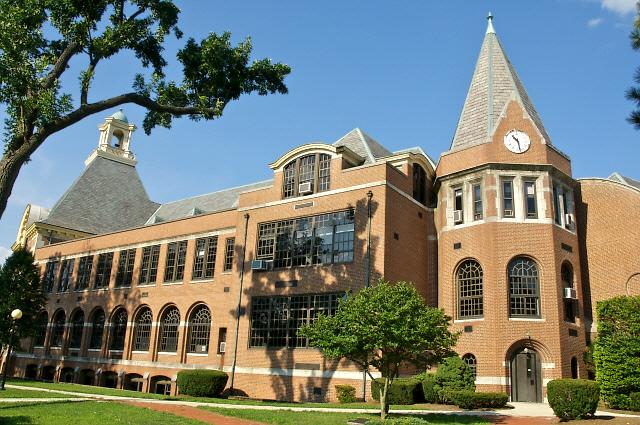Interesting report just out from a study of teachers' opinions by the Gates Foundation. Here's the text of the article that appeared in the Seattle Times:
What do teachers want?
Supportive principals more than higher salaries.
Digital media more than textbooks.
Evaluations based on how much their students learn, rather than on principals' observations.
Those are a few findings from what's thought to be the largest-ever survey of American public-school teachers, sponsored by the Bill & Melinda Gates Foundation and the Scholastic publishing company.
Over the phone and online, about 40,000 teachers answered questions about what they need to help more students achieve, and what they think about issues such as merit pay, testing and common learning standards.
The results offer a rich look at the challenges and frustrations of teachers and underscore how deeply many care about their work. Seven out of 10, for example, reported they attend student events at night or on weekends.
For the Gates Foundation, the goal was to highlight teacher opinions on how best to improve the nation's schools — a debate taking place in school districts and state capitols across the nation.
"We wanted to put teachers' voices front and center in the debate around education reform," said Vicki Phillips, the Gates Foundation's education director. "Teachers are on the front line of this work every day ... it doesn't make sense not to be talking to teachers."
Harris Interactive, a market research firm, conducted the survey from mid-March through mid-June last year. Teachers weren't told who sponsored the survey.
Enough teachers responded that the results were broken out by state, and sometimes by age, or the median income of a school's families.
The results for Washington state largely mirrored the national results. One exception was merit pay. Forty-seven percent of Washington's teachers said pay for performance was "not at all important" in keeping good teachers. Nationally, just 36 percent of teachers said the same.
Another was the importance of a longer school day and year. Forty-two percent of Washington teachers said those would have a strong impact on student achievement, compared with just 29 percent nationally.
And a slightly lower rate of Washington teachers listed supportive leadership as "absolutely essential" in keeping good teachers — 62 percent compared with 68 percent nationally.
Other highlights of the national results:
• While 92 percent of teachers said tests given in class are essential or very important in measuring student achievement, just 27 percent said the same about state standardized tests.
• Just 22 percent said they thought evaluations by principals were a very accurate measure of their work.
• Less than half said higher salaries are absolutely essential for keeping good teachers, and only 8 percent said they thought pay for performance is vital.
• Forty percent said students entered their classrooms below grade level.
• Nearly 60 percent said common learning standards in all states would have a strong impact on student achievement.
• Just 12 percent strongly agree that traditional textbooks engage students, while 44 percent said the same about digital resources such as classroom technology.
• Close to a third — 30 percent — said monetary rewards for teachers had no impact on increasing students' academic achievement.
• The results also showed some divides by age. New teachers, for example, value pay for performance more than veterans.
Phillips said some questions addressed national-education issues while others focused on areas of interest to the Gates Foundation.
The results also supported some of the Gates Foundation's views on education reform — especially its support of national learning standards. But not all.
While the foundation also supports performance pay for teachers, the teachers surveyed did not assign it much value.
Teachers' opposition to pay for performance was not surprising, Phillips said.
"While we are proponents of performance-based compensation," she said, "we also agree with teachers that it shouldn't be based on one test ... or capricious evaluation, or popularity."
That's one reason the Gates Foundation is researching new ways of evaluating teachers, she said. "We want to figure out what set of indicators teachers would see as fair."
The survey findings won't cause the foundation to make major changes, Phillips said, but they do provide food for thought about how it tries to help improve the quality of teaching. That's been a focus of the foundation's education giving since Phillips arrived several years ago.
Leaders of the nation's two leading teachers unions both praised the survey at a Wednesday press event, saying teachers deserve to be heard and often are not.
Randi Weingarten, president of the American Federation of Teachers, said at medical conferences, doctors mostly talk to each other about their work. Yet at education conferences, she said, it's superintendents and consultants talking to teachers.
"What we see is an absence of a deep respect for our profession," she said.
The survey is just one way the foundation solicits teachers views. It also uses teachers as advisers in many of its efforts. And it says it plans to do a second teacher survey, although probably not as large as this one.
Welcome!
Welcome to Laurie Goodman's blog. I use this space to share news and opinions about education and schools in Ridgewood, the state of New Jersey and the nation, in addition to other issues I'm personally interested in. I invite you to share your thoughts, feelings, questions or opinions, too, by posting comments on any blog entry. Please observe basic courtesy -- keep your comments focused on issues, no personal attacks or bullying, please. Contact me directly at: lauriegood@mac.com
Friday, March 5, 2010
Subscribe to:
Post Comments (Atom)





No comments:
Post a Comment